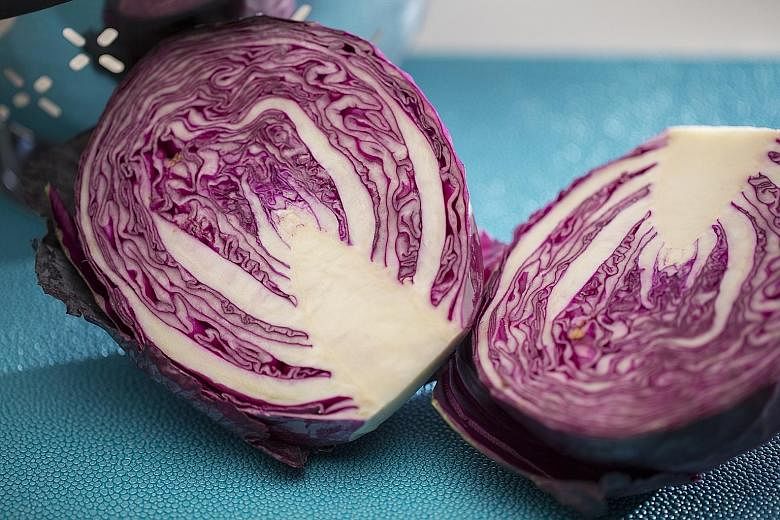Q: How does red cabbage compare to blueberries, nutritionally speaking?
A: Red cabbage is a low-calorie food that is a good source of vitamins.
But if you are looking for a big infusion of the potent antioxidants that blueberries are famous for, "you're not going to get that from red cabbage", said Dr Amy Howell, a researcher at Rutgers University's Marucci Centre for Blueberry and Cranberry Research.
The antioxidant content of blueberries far exceeds that of raw red cabbage, according to a United States Department of Agriculture analysis of the nutrient values of fruit and vegetables.
Red cabbage contains antho- cyanin - the antioxidant plant pigment that gives fruit and vegetables a blue, red or, in the case of red cabbage, purple colour. They all have the same parent compound, called anthocyanidin.
Blueberries contain five of the parent compounds and dozens of derivatives, Dr Howell said, and a greater variety of nutrients is likely to contribute to a wider range of medicinal benefits.
Blueberries contain many other beneficial compounds, she added. "Blueberries are a melting pot of these bioactive compounds that bring different health benefits. They eclipse red cabbage."
Dr Mary Ann Lila, director of the Plants for Human Health Institute at North Carolina State University in Kannapolis, said: "It is the complex profile and synergising interactions between these disease- fighting species of anthocyanins that give blueberries their powerful punch."
Some studies suggest that blueberries may boost memory, improve insulin sensitivity and help to inhibit some chronic diseases.
Red cabbage, like other cruciferous vegetables, contains glucosinolates. These plant compounds may have anti-cancer properties (and are also responsible for the slightly bitter taste).
A serving of red cabbage contains 85 per cent of the vitamin C that you need in a day, 20 per cent of vitamin A, 42 per cent of vitamin K and just under 10 per cent of B6, as well as a variety of minerals.
Cooking red cabbage degrades the anthocyanins and glucosinolates, so it is best to eat it raw.
NYTIMES

